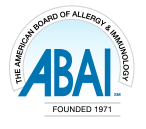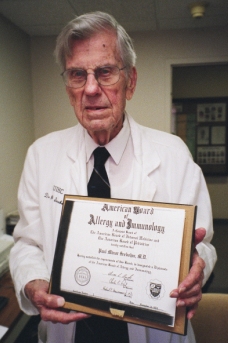President's Message:
ABAI MOC Program — Maximizing Quality at a Minimum of Cost
by Stephen I. Wasserman, MD
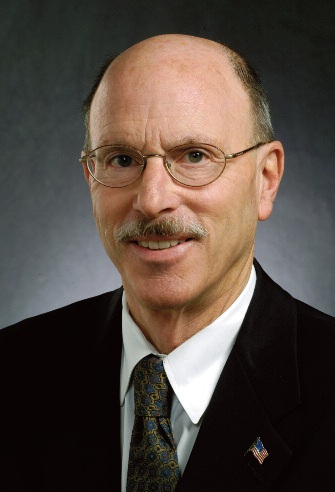
As I was thinking about this column I thought that a discussion of how the board works, and how that work is accomplished, both physically and financially might be of interest to our diplomates.
The ABAI is comprised of 16 directors, 8 internists and 8 pediatricians who serve the board for 6-year terms as volunteers to our specialty. They are nominated by sitting directors and/or our specialty societies and are elected by the sitting directors. Directors attend two three-day meetings of the board annually and are compensated $1,000 for each ABAI meeting they attend. These are 11-12 hour working meetings held at standard, convenient, affordable locations such as airport hotels in major U.S. cities or in Philadelphia near the ABAI offices. An additional annual stipend of $1,000 is provided to support the extra activities of the board co-chairs, examination co-chairs and the chair of the Maintenance of Certification (MOC) committee. Directors' overall responsibilities are to set policy for the ABAI. Additional responsibilities for all board directors include writing 20-30 new questions for board examinations each year, reviewing and modifying at least 200 questions per exam prior to, and again, at the meetings and assembling psychometrically sound examinations. After exam administration, directors review the examination to assure validity of all questions. These efforts require many hours of uncompensated effort. Directors who serve on the executive committee, the MOC committee and the audit and
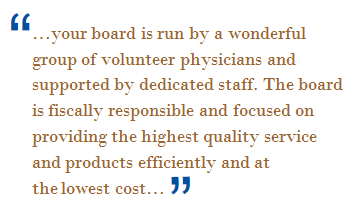 finance committees also participate in regular conference calls at a frequency of 12, 4, and 4 per year respectively for which they receive no compensation. In addition, selected directors serve as liaisons to American Board of Internal Medicine (ABIM) and American Board of Pediatrics (ABP), serving those boards and attending their meetings as appropriate (1-3 annually) with compensation from the ABIM or ABP as appropriate. One of our directors also serves as a member of the American Board of Medical Specialties (ABMS) Board of Directors (4 meetings per year without compensation). Directors also serve on many internal ABAI committees including audit and finance, ethics, conjoint credentials, and MOC. The latter committee is charged with developing new MOC materials and the members attend a number of meetings of ABMS, and other organizations involved in MOC efforts. All such director activities are uncompensated.
finance committees also participate in regular conference calls at a frequency of 12, 4, and 4 per year respectively for which they receive no compensation. In addition, selected directors serve as liaisons to American Board of Internal Medicine (ABIM) and American Board of Pediatrics (ABP), serving those boards and attending their meetings as appropriate (1-3 annually) with compensation from the ABIM or ABP as appropriate. One of our directors also serves as a member of the American Board of Medical Specialties (ABMS) Board of Directors (4 meetings per year without compensation). Directors also serve on many internal ABAI committees including audit and finance, ethics, conjoint credentials, and MOC. The latter committee is charged with developing new MOC materials and the members attend a number of meetings of ABMS, and other organizations involved in MOC efforts. All such director activities are uncompensated.
Implementation of the policy and procedures, developed by the directors, is the responsibility of the ABAI staff. ABAI is fortunate to have an outstanding staff of professionals who are dedicated to our specialty and to our diplomates. In comparison to our parent boards, ABAI utilizes a very small staff to carry out the many activities of the board. Currently ABAI has a staff of 7, including the president (Stephen Wasserman), COO (Larry Vapniarek). ABAI is housed in modest rented office space in a class B building in the historic district of Philadelphia. All of ABAI’s computer expertise, exam development personnel, and MOC, certification, credentialing and reception staff are housed together in this space. Although many of you have met our staff, more detailed introductions to each of our staff will be appearing in forthcoming issues of this newsletter. Duties of the COO are to supervise staff on a daily basis and assure the smooth running of the ABAI office and its interaction with diplomates. He also oversees the day-to-day finances of the board, drafts budgets and assures smooth relationships with vendors. The president is responsible for the professional supervision of the board, and works to fulfill the directives and policies as set by the Directors. He is also responsible for all of the external relationships of ABAI including with ABMS, our parent boards (ABIM and ABP), the RRC for Allergy and Immunology, our societies (AAAAI, ACAAI and CIS), and represents the ABAI at meetings important to our mission including collaboration with ABMS boards such as Family Medicine, Otolaryngology, Dermatology and Radiology as issues arise. Last year the president traveled to 15 meetings and spent over 40 days away from the office representing ABAI to enhance our external relationships.
To accomplish its work the board requires both human and financial resources. In addition to the volunteer resources of the directors, there are expenses that must be met so that the ABAI can fulfill its responsibilities to our profession and our diplomates. The annual budget of the ABAI is approximately $1.25-1.35 million per year. As ABAI is a 501(c)6 corporation, it is non-profit, and the directors take their fiduciary responsibility to the board and to our diplomates/profession quite seriously. Thus the ABAI seeks to balance income with expenses, and to preserve reserve funds to assure stability of the board during extraordinary times. General advice given to non-profit organizations such as ABAI is to have reserves equal to 2-3 years of expenses to be sure to survive catastrophic events. Currently the ABAI has 2.5 years of reserves, having recovered from the Great Recession thanks to the recovery of the financial markets. ABAI reserves are very conservatively invested and their management supervised by the president and COO, with the oversight and advice of the audit and finance committee (currently chaired by James Baker, MD) that sets ABAI investment policy. ABAI finances and management procedures are audited annually by an outside audit firm. All audits of ABAI have been "clean". The expenses of the board include salary, insurance and benefits costs, rent and other general office expenses including equipment, payments to test vendors, data storage providers,
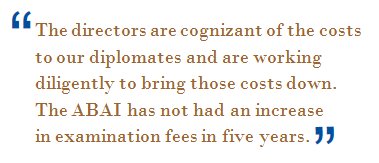 psychometric support, ABMS membership dues, fees for access by our diplomates to the ABIM Web Portal, accounting, IT support, and development of new, and maintenance of previously developed, MOC materials. Additional expenses include those for legal assistance, credit card merchant fees, and costs to maintain our website. ABAI leadership balances these expenses (approximately $1.25-1.35 million/year as noted above) with revenue in a fiscally responsible manner, yet in a manner that imposes the minimum possible cost to diplomates and regular reappraisal of expenses and prices of our materials. ABAI is a small board, and thus does not have the diplomate base to amortize cost easily, and thus our costs per diplomate are higher than those of our parent boards. The Directors are cognizant of the costs to our diplomates and are working diligently to bring those costs down. The ABAI has not had an increase in examination fees in five years. As president, I hope to be able to provide some good news on this front within the year. For the fiscal year 2011 the board has budgeted income (including investment income) to essentially balance with our expenses—the board is truly non-profit, and is not attempting to build reserves through diplomate fees. Our 2011 budget is based on 180 candidates for certification and 200 candidates for MOC examinations, as well as on the annual MOC fees. The 2010 financial performance of the board indicates income of $1.13 million (including return on investments) and expenses of $1.01 million indicating that investment returns, in part, were used to support operations, an option that should not be a long term policy of the board as it slows growth of reserves essential to long term board viability.
psychometric support, ABMS membership dues, fees for access by our diplomates to the ABIM Web Portal, accounting, IT support, and development of new, and maintenance of previously developed, MOC materials. Additional expenses include those for legal assistance, credit card merchant fees, and costs to maintain our website. ABAI leadership balances these expenses (approximately $1.25-1.35 million/year as noted above) with revenue in a fiscally responsible manner, yet in a manner that imposes the minimum possible cost to diplomates and regular reappraisal of expenses and prices of our materials. ABAI is a small board, and thus does not have the diplomate base to amortize cost easily, and thus our costs per diplomate are higher than those of our parent boards. The Directors are cognizant of the costs to our diplomates and are working diligently to bring those costs down. The ABAI has not had an increase in examination fees in five years. As president, I hope to be able to provide some good news on this front within the year. For the fiscal year 2011 the board has budgeted income (including investment income) to essentially balance with our expenses—the board is truly non-profit, and is not attempting to build reserves through diplomate fees. Our 2011 budget is based on 180 candidates for certification and 200 candidates for MOC examinations, as well as on the annual MOC fees. The 2010 financial performance of the board indicates income of $1.13 million (including return on investments) and expenses of $1.01 million indicating that investment returns, in part, were used to support operations, an option that should not be a long term policy of the board as it slows growth of reserves essential to long term board viability.
In summary your board is run by a wonderful group of volunteer physicians and supported by dedicated staff. The board is fiscally responsible and focused on providing the highest quality service and products efficiently and at the lowest cost consistent with the fiduciary duty of the directors to pass on to the next generation a healthy and vibrant board.
